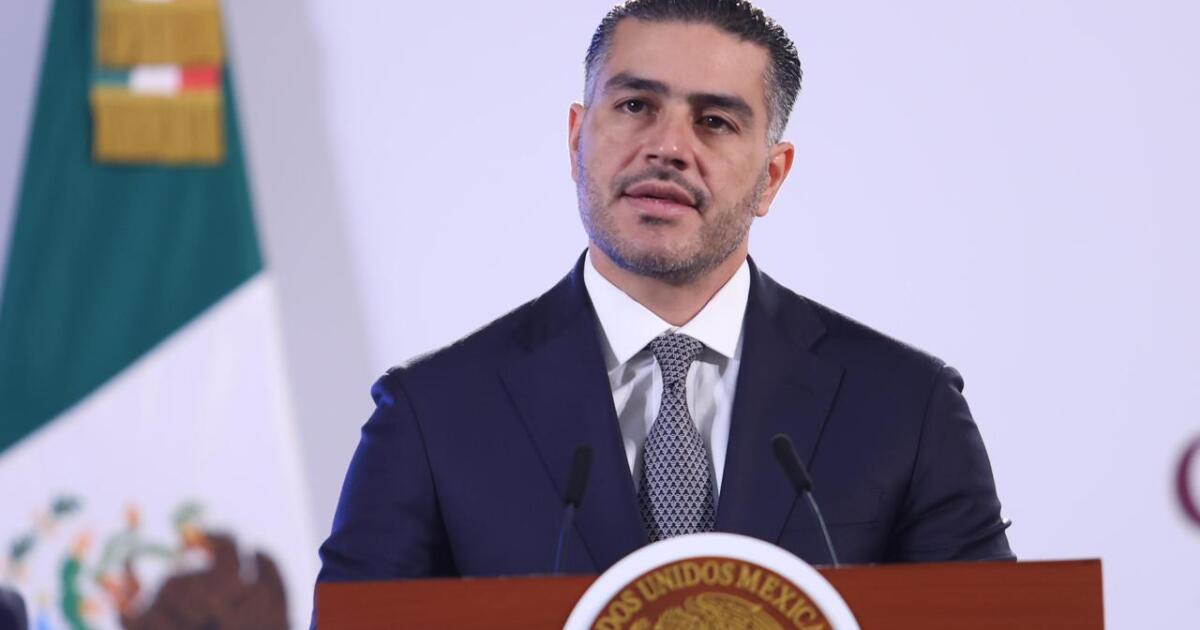Despite this, Claudia Sheinbaum uses both figures by putting a “super secretary” in a “super secretariat”, through the figure of Omar García Harfuch, and intelligence as its main instrument of action.
Like Genaro García Luna, Omar García Harfuch is a police officer with extensive training and experience in the cabinet and field and, mainly, he has the full political trust of the president. That is, he has his permission to become the main person responsible for the public security of this country. Not only that, as in the times of Peña Nieto, now the secretary has enough “teeth” to operate.
If the Defense (which until a week ago was called Sedena), controls the National Guard, García Harfuch, thanks to the reforms to article 21 of the CPEUM, has formally become the maximum definer and coordinator of public security policy to national level, above the military, adding the same investigative capabilities as the National Guard and having control of intelligence.
How can we prevent the story of García Luna and that of Peña Nieto’s Interior Ministry from being repeated again? It seems to me that the key is in the strategic, political and technical use, precisely of intelligence in the face of three nodal challenges: maintaining the status quo of the military, end the violence left by criminal wars and stop the consequences of the public security policy of the United States under the mandate of Donald Trump; Here are some notes.
Maintain the military status quo
The military is the only actor with the ability to sabotage Sheinbaum’s security policy. Not only because they control the National Guard, but also because they lead a multitude of strategic areas for economic development, such as infrastructure or customs. In short, they have ample negotiating resources to subdue the federal Executive.
Omar García Harfuch must exploit his coordination and intelligence capabilities without attacking the political interests of an institution that is not accustomed to the civil mandate and that with the re-election of Rosario Piedra also has a greater margin of impunity in the violation of Human Rights. It seems to me that if intelligence favors the military leadership—relieving the pressures exerted by troops in the face of abuse and overexploitation—then there is the possibility of finding a point of balance that drives the security strategy.
End the violence of criminal war
In principle, the relevant arrests are the hallmark of the security policy at this start of the six-year term. Last Tuesday, García Harfuch boasted the capture of just over three thousand people, which included key operators of the Sinaloa Cartel in different entities and even, that same day in the afternoon, the arrest of one of the responsible for the murder of the mayor of Chilpancingo, Alejandro Arcos. However, arrests are of no use if criminal and homicidal violence continues.
In recent weeks, the aggressiveness of organized crime has intensified. For example, in Sinaloa the executions between hitmen and against union leaders do not stop; and the massacres due to disputes over various illicit markets extend to entities such as Querétaro or the State of Mexico.
García Harfuch’s main challenge is to convert intelligence into the articulating axis of the public security system as a whole and direct all machinery towards the effective and comprehensive dismantling of organized crime, including hitmen and the flow of weapons; Otherwise, the arrests will be nothing more than propaganda for the regime. It will be necessary to unify the executive and judicial authorities at all levels of government.
Trump’s threat
President Donald Trump has no incentive to moderate in his fight against Mexican criminal groups. He will do everything he can to feed his electorate. In addition to frontal attacks, this includes repeatedly bypassing the Mexican State to negotiate directly with criminal organizations to dismantle their rivals, as occurred with the arrest of “El Mayo” Zambada. The consequences? A very violent reconfiguration of the territorial control of organized crime that only leaves political, economic and social costs for Mexico, see the case of Sinaloa.















